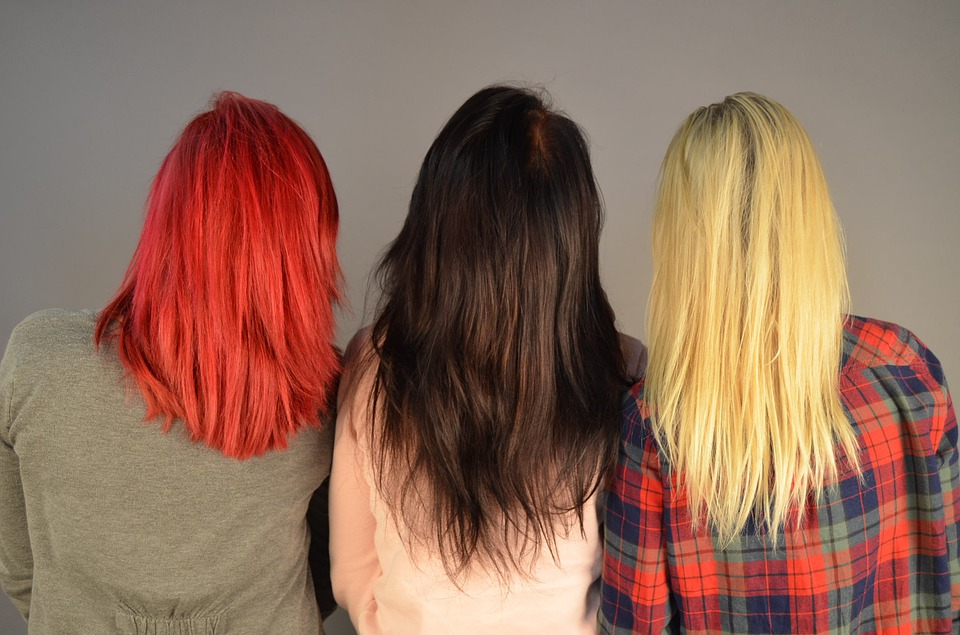Research confirms a link between chemical hair colors and cancer
12/11/2018 / By Edsel Cook

You may want to think twice about the nice-looking dye you want to try out on your hair. An article in Natural Health 365 warned that the synthetic chemicals used in hair coloring can make their users much more vulnerable to several types of cancer.
This is bad given that three out of every four Americans, Europeans, and Japanese use chemical hair colors almost every day. They use it for a variety of reasons, but the end result is all the same.
Younger people apply dye to their hair to change their natural appearance. They do it to look cool and fashionable to their peers or people they are trying to impress.
Older people, on the other hand, want to hide any gray or white hair on their heads from sight. They wish to look younger than they really are.
Humans have been coloring their hair since the dawn of civilization. In ancient times, they used natural pigments like henna, which is derived from the henna plant.
Nowadays, hair dye uses synthetic ingredients to change the appearance of your hair. These chemical compounds are often toxic to living things, especially over long periods of time. (Related: Purple hair dye nearly KILLS family dog… what’s it doing to YOUR health?)
Hair coloring products have thousands of carcinogenic chemical ingredients
So just how dangerous are hair color products? Well, the chemicals that comprise them are known to increase the risk of cancerous growths in the bladder, breasts, and kidneys. These ingredients are also capable of causing leukemia, lymphoma, and other blood cancers.
One of the biggest offenders is p-Phenylenediamin – PPD for short. A common ingredient in hair dyes, it has been shown to trigger asthma, dermatitis, gastritis, tremors, and vertigo. It irritates the eyes, can cause the kidneys to fail, potentially leads to convulsions, and even puts its victims in a comatose state.

PPD is not the only carcinogen present in hair coloring. A single product can contain up to 5,000 different chemicals. Many of them, like ammonia and lead acetate, will trigger harmful effects when they come into contact with human hair.
Of the three types of hair colors – temporary, semi-permanent, and permanent – the permanent ones are the most common and the worst. Permanent hair dye use chemical agents that react with hydrogen peroxide, which causes the release of even more toxins.
Scientific studies warn against using synthetic hair dyes
Many researchers have already covered the dangers of using hair color. In 1994, the National Cancer Institute took a good look at the health risks of prolonged use of dark hair dyes.
The study determined that regular use of hair coloring products over long periods of time caused the appearance of certain cancers. Multiple myeloma and non-Hodgkin’s lymphoma were specifically identified as the most common types.
The dyes not only affect the customers who want to recolor their hair. They also harm the health of their hairdressers. A 2009 study by the International Agency for Research on Cancer (IARC) discovered that hairdressers who frequently worked with hair coloring became more prone to bladder cancer, leukemia, and lymphoma.
On top of that, the IARC report showed that the chemicals in the hair coloring entered the body through the scalp. That region of the head contains numerous blood vessels.
Given a typical hair dying session takes around 30 minutes, the chemicals have more than enough time to penetrate the skin. They proceed to taint the blood running through the blood vessels, leading to the development of various cancers.
Chemicals.news can tell you more about dangerous chemicals used in innocuous products like hair color.
Sources include:
Submit a correction >>
Tagged Under:
hair color, hair colorants, hair dyes, p-Phenylenediamine, toxic chemicals
This article may contain statements that reflect the opinion of the author




















